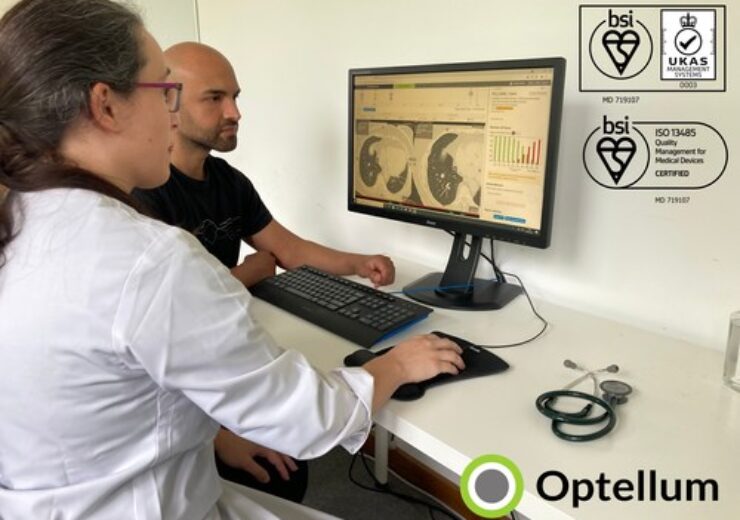The AI-based tool is capable of identifying and tracking at-risk patients with suspicious lung nodules for the detection of cancer

The platform is currently being used as a pilot project at NHS hospitals. (Credit: Optellum)
Oxford-based medtech company Optellum has received CE marking for its latest Virtual Nodule Clinic, an artificial intelligence (AI) technology for early lung cancer detection.
The AI-based clinical decision-support software tool is capable of identifying and tracking at-risk patients with suspicious lung nodules for the detection of cancer.
The certification will allow Optellum to make the technology commercially available in the European Union (EU) and the UK.
Optellum’s Virtual Nodule Clinic incorporates the clinically validated lung cancer prediction (LCP) score based on imaging AI to enhance clinical care coordination and decisions.
Optellum CEO Jason Pesterfield said: “Having CE marking will allow us to use our innovative AI in the existing UK clinical sites, enabling physicians and patients to benefit from our technology without delay.
“It will also allow us to expand our commercial sales into Europe and further our existing partnerships with some of the hospitals and clinics that have been part of our early product development.”
The company received 510(k) clearance from the US Food and Drug Administration (FDA) for its AI-assisted diagnosis application for lung cancer in 2021.
Following the FDA approval, Optellum has received support from partnerships with the National Health Service (NHS) with funding from Innovate UK and the National Institute for Health Research (NIHR).
Virtual Nodule Clinic is designed to help patients receive treatment before the disease has metastasised and increase the lung cancer survival rates.
University of Nottingham honorary professor of medicine David Baldwin said: “There is strong evidence from carefully conducted research that this AI-based Lung Cancer Prediction tool does a better job of distinguishing benign from malignant nodules with the potential to save the NHS money currently spent on repeat CT scans.
“The DOLCE study aims to both confirm the results and quantify that saving, and should be the last step in full implementation in the NHS.”
In August last year, the lung-health AI company has entered a strategic collaboration with the Lung Cancer Initiative at Johnson & Johnson to apply its AI-based platform to increase lung cancer survival rates.
